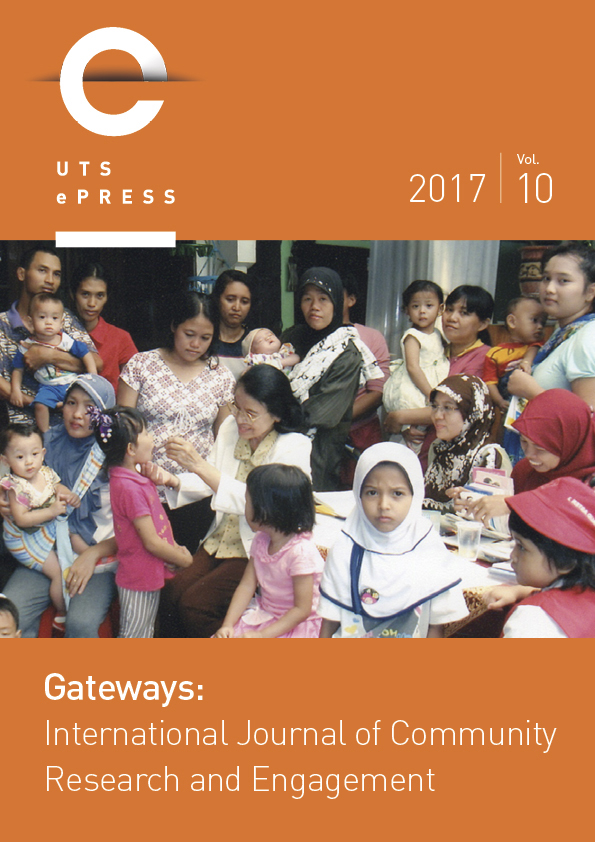Power and politics in research design and practice: Opening up space for social equity in interdisciplinary, multi-jurisdictional and community-based research
Main Article Content
Abstract
Working collaboratively with communities is commonly considered a cornerstone of good practice in research involving social-ecological concerns. Increasingly, funding agencies also recognise that such collaborations are most productive when community partners have some influence on the design and implementation of the projects that benefit from their participation. However, researchers engaged with this work often struggle to actively engage community members in this way and, in particular, Indigenous peoples. In this article, we argue that useful strategies for facilitating such engagement are to leave space in the research plan for questions of interest to community partners and to encourage equitable interactions between all participants through the use of forums in which power dynamics are intentionally flattened. We demonstrate the use of this technique in an interdisciplinary, multi-jurisdictional research study involving the fate and transport of toxic compounds that lead to fish consumption advisories throughout the world. In this project, the use of participatory forums resulted in community partners in Michigan’s Keweenaw Bay area of Lake Superior shaping a key aspect of the research by raising the simple but significant question: ‘When can we eat the fish?’. Their interest in this question also helped to ensure that they would remain meaningful partners throughout the duration of the project. The conclusion emphasises that further integration of Indigenous and community-based research methods has the potential to significantly enhance the process and value of university-community research engagement in the future.
Article Details
Issue
Section
Authors who submit articles to this journal from 31st March 2014 for publication, agree to the following terms:
a) Authors retain copyright and grant the journal right of first publication with the work simultaneously licensed under a Creative Commons Attribution License that allows others to share and adapt the work with an acknowledgement of the work's authorship and initial publication in this journal.
b) Authors are able to enter into separate, additional contractual arrangements for the non-exclusive distribution of the journal's published version of the work (e.g., post it to an institutional repository or publish it in a book), with an acknowledgement of its initial publication in this journal.
c) Authors are permitted and encouraged to post their work online (e.g., in institutional repositories or on their website) prior to and during the submission process, as it can lead to productive exchanges, as well as earlier and greater citation of published work (See The Open Access Citation Advantage Service). Where authors include such a work in an institutional repository or on their website (ie. a copy of a work which has been published in a UTS ePRESS journal, or a pre-print or post-print version of that work), we request that they include a statement that acknowledges the UTS ePRESS publication including the name of the journal, the volume number and a web-link to the journal item.
d) Authors should be aware that the Creative Commons Attribution (CC-BY) License permits readers to share (copy and redistribute the work in any medium or format) and adapt (remix, transform, and build upon the work) for any purpose, even commercially, provided they also give appropriate credit to the work, provide a link to the license, and indicate if changes were made. They may do these things in any reasonable manner, but not in any way that suggests you or your publisher endorses their use.
For Volume 6 (2013) and before, the following copyright applied:
Articles published by UTSePress are protected by copyright which is retained by the authors who assert their moral rights. Authors control translation and reproduction rights to their works published by UTSePress. UTSePress publications are copyright and all rights are reserved worldwide. Downloads of specific portions of them are permitted for personal use only, not for commercial use or resale. Permissions to reprint or use any materials should be directed to UTSePress.
